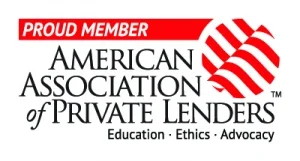Searching for a loan? That’s fantastic! Getting access to extra funds can open up exciting possibilities – whether it’s financing a home renovation, consolidating debt, or finally taking that dream vacation. However, before you dive headfirst into the first offer you see, it’s absolutely critical to ensure you’re dealing with a legitimate lender. Unfortunately, the world of finance has its fair share of loan sharks lurking in the shadows, eager to exploit borrowers with unfair terms and predatory practices.
But you don’t need to worry! This guide will transform you into a savvy loan detective, equipped with the skills to tell the good guys from the bad. Think of it as your trusty shark-repellent in the sometimes-murky waters of lending!
Why Should You Care About Legitimate Lenders?
Choosing a reputable lender is more important than you might think! Here’s a quick breakdown of why it matters:
Protecting Your Wallet:
Predatory lenders often come with outrageously high-interest rates and hidden fees designed to drain your finances. You could end up owing far more than you originally borrowed.
Guarding Your Identity:
Scammers love to pose as lenders to trick you into handing over your sensitive personal information. They can then use this data for identity theft and other fraudulent activities.
Keeping Your Credit Score Squeaky Clean:
Doing business with a disreputable lender can negatively impact your credit score. This, in turn, makes it harder to qualify for future loans, credit cards, or even apartments – talk about a lasting headache!
Unveiling the Mystery: Who is This Lender, Anyway?
When it comes to lenders, legitimacy isn’t determined by fancy websites or promises of easy money. Real legitimacy relies on proper licensing and regulation. Before you even think about applying for a loan, it’s time to do some investigative work!
Licence to Lend:
Think of a licence as a lender’s official permission slip to operate. Every legitimate lender in the United States must be licensed by either federal or state regulatory bodies. Let’s see how to find out if your potential lender has the right credentials.
Federal Agencies:
The heavy hitters in the lending regulation world are the Consumer Financial Protection Bureau (CFPB) and the Federal Trade Commission (FTC). These agencies provide excellent resources for verifying the legitimacy of lenders. Often, they even maintain publicly accessible databases where you can search for specific lender information.
State Secrets:
Since financial regulations can vary from state to state, it’s crucial to know the rules in your specific location. Typically, state attorneys general or specialized state financial regulatory agencies are the places to turn to. These agencies should be able to provide you with a list of licensed lenders operating within your state.
Website Woes or Web of Trust?
In this digital age, a company’s website often serves as its first point of contact with potential customers. A lender’s website can reveal quite a bit about its legitimacy (or lack thereof). Let’s play web detective!
Review Revolution:
Don’t be shy about digging into online reviews! Sites like the Better Business Bureau (BBB) and Trustpilot are excellent platforms for reading real customer experiences with a lender. While it’s normal to see the occasional negative review (even legitimate companies encounter disgruntled customers), be on high alert if the majority of reviews raise serious concerns.
Website Warning Signs:
A poorly designed website riddled with typos and grammatical errors is a major red flag. If the website looks outdated or has security issues (note if it’s missing the ‘https’ before the website address), it’s probably time to steer clear. Legitimate businesses invest in their online presence, as it reflects their professionalism and commitment to customer experience.
Contact Chronicles:
Reputable lenders don’t hide behind P.O. boxes. They make their contact information readily available, including a physical address. If you have trouble finding clear contact details, or if the address points to a dubious location, consider this a sign that transparency isn’t a priority for this lender.
Red Flags: When a Loan Offer Looks Too Good to Be True…
It’s an age-old adage for a reason – if something seems too good to be true, it probably is. This holds especially true in the lending world. Unscrupulous lenders often deploy a host of tactics designed to lure in unsuspecting borrowers. Let’s break down some of the most common red flags:
The Unsolicited Siren Song:
Legitimate lenders generally don’t initiate contact out of the blue with unsolicited loan offers, particularly via text, email, or social media. If you’re receiving random messages promising easy loan approval, be extremely skeptical. Often these are phishing attempts aimed at collecting your personal data.
The Pressure Play:
Feeling pressured to sign loan documents on the spot or being discouraged from taking the time to carefully read the terms is a serious cause for concern. Reputable lenders want their borrowers to make informed decisions. High-pressure tactics are hallmarks of shady operations.
Upfront Fees Fiasco:
Most legitimate lenders don’t charge upfront fees just for an application or before your loan is actually approved. If a lender demands some form of payment before any formal loan agreement is in place, it’s best to walk away.
Guaranteed Approval Gig:
Lenders who promise approval, regardless of your creditworthiness, should be avoided. Responsible lending practices always involve a review of your credit history to determine the terms and rates you qualify for. Promises of “guaranteed approval” are often a ploy to target desperate borrowers, potentially luring them into unfavourable loan agreements.
Trust Your Gut: Your Inner Loan Shark Detector
Sometimes, even after conducting thorough research, there might be a lingering uneasy feeling about a particular lender. Don’t discount your instincts! Intuition can be a powerful tool, particularly when it comes to protecting your finances.
The “Something’s Fishy” Feeling:
If something just feels off, regardless of whether you can point to a specific reason, it deserves your attention. It’s possible your subconscious picked up on subtle cues that you haven’t consciously processed. Often, our brains notice inconsistencies or patterns that scream “not quite right” even if we can’t articulate it.
Don’t Be Rushed:
When dealing with money matters, clarity and careful consideration are key. Never rush into a loan decision. Comparing offers, reviewing terms thoroughly, and taking the time to think things through will save you from a world of potential financial trouble.
Second Opinions Save the Day:
If you’re unsure, don’t hesitate to seek a second opinion. Talk to a trusted financial advisor, friend, or family member for some additional perspective. Sometimes, just explaining the situation out loud can reveal inconsistencies or help you realize potential red flags that you might have missed.
Beyond the Basics: Extra Tips for Savvy Borrowers
So far, we’ve covered the fundamental steps of verifying a lender’s legitimacy. Now, let’s go the extra mile with some additional tips to ensure you’re working with truly reputable companies.
Phone Phishing Phonies:
Be extremely wary of unsolicited phone calls offering amazing loan deals. Often, these aren’t actual lenders but rather scammers attempting to collect personal information. If you receive such a call, it’s best to hang up and research the company independently (using the official contact information from their website, not the phone number given to you).
Lender League of Legitimacy:
Consider using reputable lending platforms or resources like the Better Business Bureau. These platforms often pre-screen lenders to some degree, providing additional peace of mind for borrowers. While not foolproof, using an established platform adds an extra layer of protection.
Conclusion
Choosing the right lender requires some work, but it’s definitely time well spent! By following the strategies outlined in this guide, you’ll be equipped to navigate the lending landscape with confidence. Remember, a little research and a healthy dose of scepticism will protect your finances and ensure your borrowing journey is a successful one.


